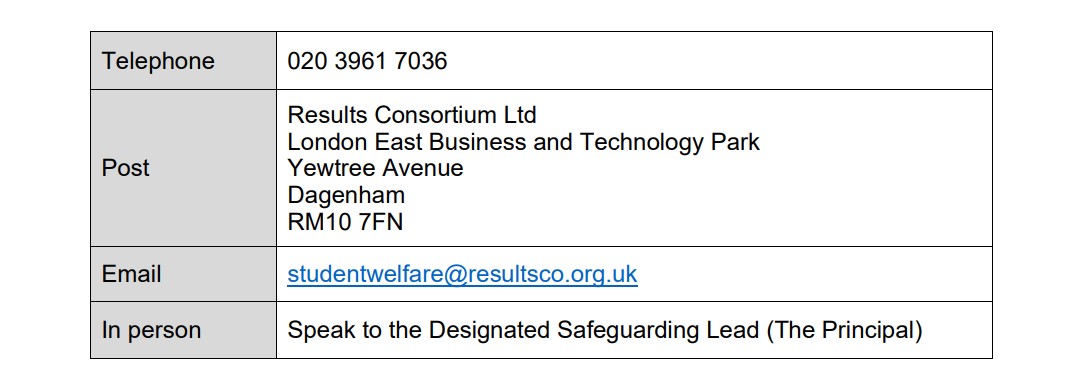1. Introduction
1.1 The threat from terrorism and extremism in the United Kingdom can involve the exploitation of vulnerable people, including children, young people and vulnerable adults, to involve them in terrorism or activity in support of terrorism. Possible indicators of vulnerability are shown in appendix 1.
1.2 Since the publication of the government’s Prevent Strategy in 2010, there has been increased awareness of the specific need to safeguard children, young people and families from violent extremism. There have been several occasions, locally and nationally, in which extremist groups have attempted to radicalise vulnerable people to hold extreme views, including views justifying political, religious, sexist or racist violence, or to steer them into a rigid and narrow ideology that is intolerant of diversity and leaves them vulnerable to future radicalisation.
1.3 Results Consortium is committed to providing a secure environment for all our students, staff and stakeholders. We value freedom of speech and the expression of beliefs as fundamental rights underpinning our society’s values. Both students and teachers have the right to speak freely and voice their opinions. However, freedom comes with responsibility and free speech that is designed to manipulate the vulnerable, or that leads to violence and harm of others, goes against the moral principles in which freedom of speech is valued. Free speech is not an unqualified privilege; it is subject to laws and policies governing equality, human rights, community safety and community cohesion. Results Consortium is of the firm belief that exploitation and radicalisation should be viewed as a safeguarding concern.
2. Definitions
2.1 Radicalisation refers to the process by which a person comes to support terrorism and forms of extremism leading to terrorism.
2.2 Extremism is defined by the Government in the Prevent Strategy as:
“Vocal or active opposition to fundamental British values, including democracy, the rule of law, individual liberty and mutual respect and tolerance of different faiths and beliefs. We also include in our definition of extremism calls for the death of members of our armed forces, whether in this country or overseas.”
HM Government (2013)

